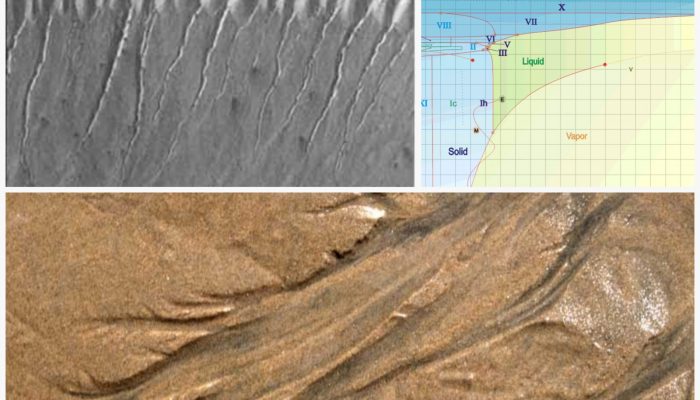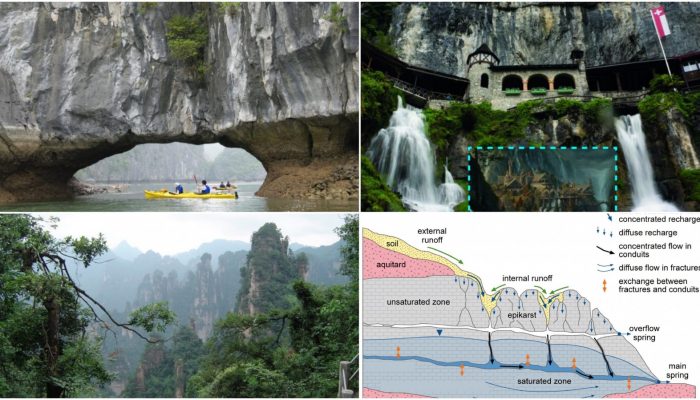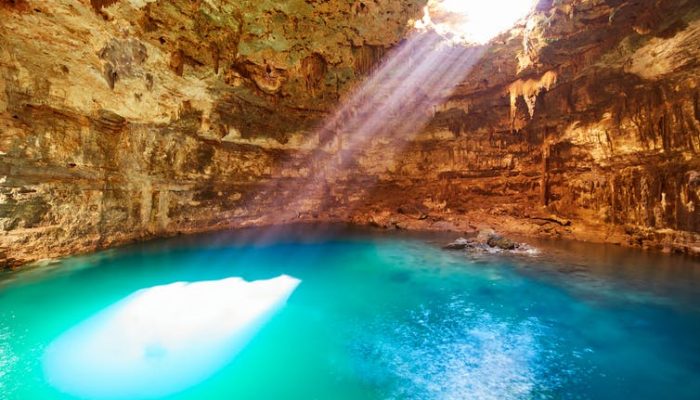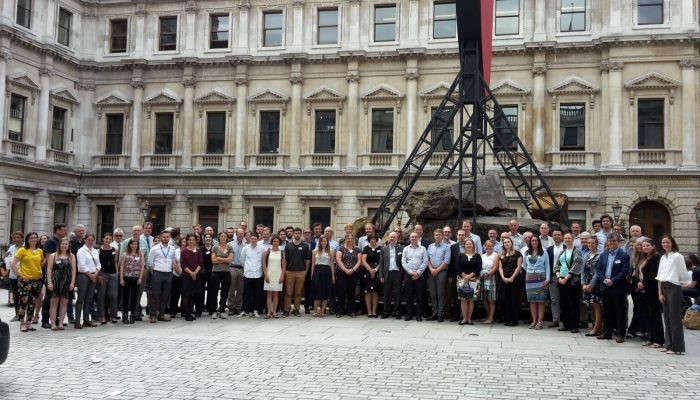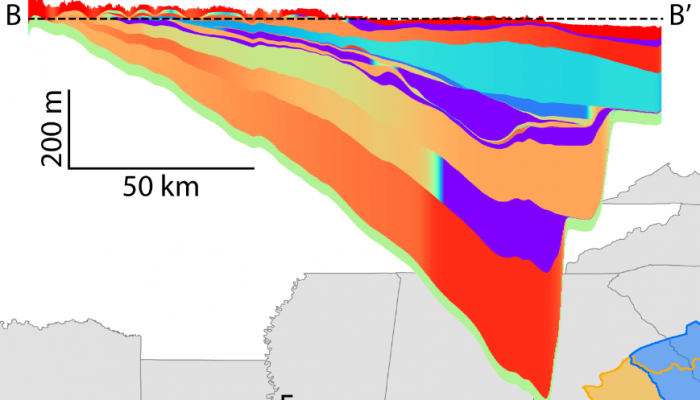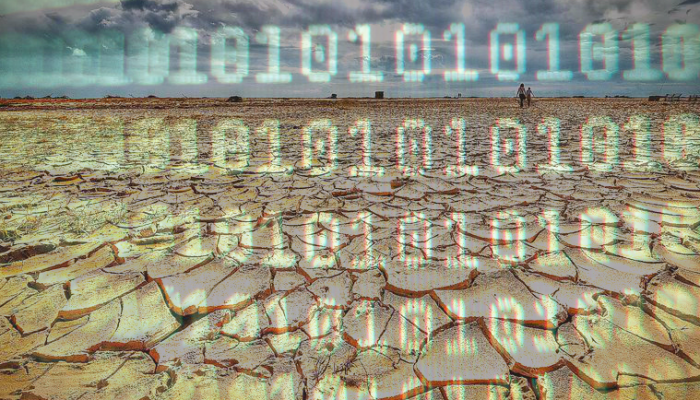Post by Kevin Befus, Assistant Professor in Civil and Architectural Engineering at the University of Wyoming. Have you ever taken a walk on the beach during a lowering (ebbing) tide and see mini-rivers grow and create beautiful drainage patterns before your eyes? These short-lived groundwater seepage features (Fig. 1A) are tiny (and fast) analogs of how groundwater has shaped some parts of Mars! ...[Read More]
Of Karst! – short episodes about karst
Post by Andreas Hartmann, Assistant Professor in Hydrological Modeling and Water Resources at the University of Freiburg. Episode 4 – Karst Groundwater: quick and slow at the same time? We often associate groundwater with large water storage and very slow water movement for instance compared to rivers. But is it possible that groundwater flow can be as quick as stream flow and, at the same aquife ...[Read More]
Water: underground source for billions could take more than a century to respond fully to climate change
WaterUnderground post by Mark O. Cuthbert, Cardiff University; Kevin M. Befus, University of Wyoming, and Tom Gleeson, University of Victoria Groundwater is the biggest store of accessible freshwater in the world, providing billions of people with water for drinking and crop irrigation. That’s all despite the fact that most will never see groundwater at its source – it’s stored naturally below gro ...[Read More]
The true meaning of life … for a hydrogeologist
I am currently on sabbatical with Thorsten Wagener’s group at the University of Bristol. While on campus, I stumbled upon this quote from Nelson Henderson (a farmer from Manitoba). It encapsulates what I have been thinking about groundwater sustainability for a number of years: “The true meaning of life is to plant trees, under whose shade you do not expect to sit”. For me, as a ...[Read More]
Unconventional Oil and Gas Development and Groundwater – Comparing the English and Canadian Experiences
by Grant Ferguson1 and Sian Loveless2 Department of Civil, Geological and Environmental Engineering, University of Saskatchewan British Geological Survey, Cardiff, Wales The differences between the English* and Canadian experiences of unconventional hydrocarbon development were apparent at a meeting co-hosted by the British Geological Survey, Geological Society of London and IAH in London i ...[Read More]
Groundwater and drought
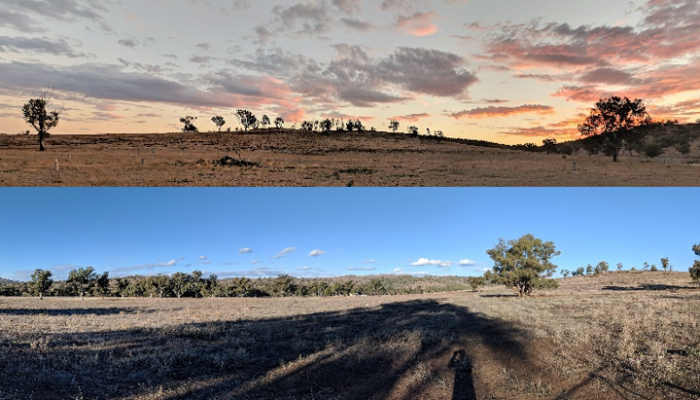
Post by Andy Baker, Professor researching groundwater, caves, past climate, organic carbon and more at the University of New South Wales, in Australia. __________________________________________________ Drought is in the news here in New South Wales, Australia. But how are rainfall, drought and groundwater related? First, we need to understand what drought is. Is it a water shortage? Or a lack of ...[Read More]
Groundwater and Education – Part two
Post by Viviana Re, postdoctoral researcher at the University of Pavia (Università di Pavia), in Italy. You can follow Viviana on Twitter at @biralnas. Part two of a two-part series on groundwater and education by Viviana. __________________________________________________ In my last post (“Drawing out groundwater (from the well)”) I wrote about the reasons why, as groundwater scientists, we shoul ...[Read More]
How deep does groundwater go? Mining (dark) data from the depths
Post by Kevin Befus, Assistant Professor at the College of Engineering and Applied Science at the University of Wyoming, in the United States. __________________________________________________ We’ve all been asked (or do the asking), “where does your water come from?” This is a fundamental question for establishing a series of additional questions that can ultimately help define strategies for va ...[Read More]
How can we make hydrogeology free from plagiarism? Reflections five years after a documented case of plagiarism in the hydrologic sciences
Tom Gleeson and Matt Currell (just to be clear about our sources…header image from http://iditis.blogspot.ca/2006/03/plagiarism-lesson-learned.html) Plagiarism is a clear contradiction of scientific values and practice. Although no universal definition of plagiarism exists, a useful working definition is the wrongful appropriation, stealing and publication of another author’s language, ...[Read More]
Data drought or data flood?
Post by Anne Van Loon, Lecturer in Physical Geography (Water sciences) at the University of Birmingham, in the United Kingdom. __________________________________________________ The basis for (almost) all scientific work, at least in the earth and environmental sciences, is DATA. We all need data to search for the answers to our questions. There are a number of options to get hold of data; we can ...[Read More]

